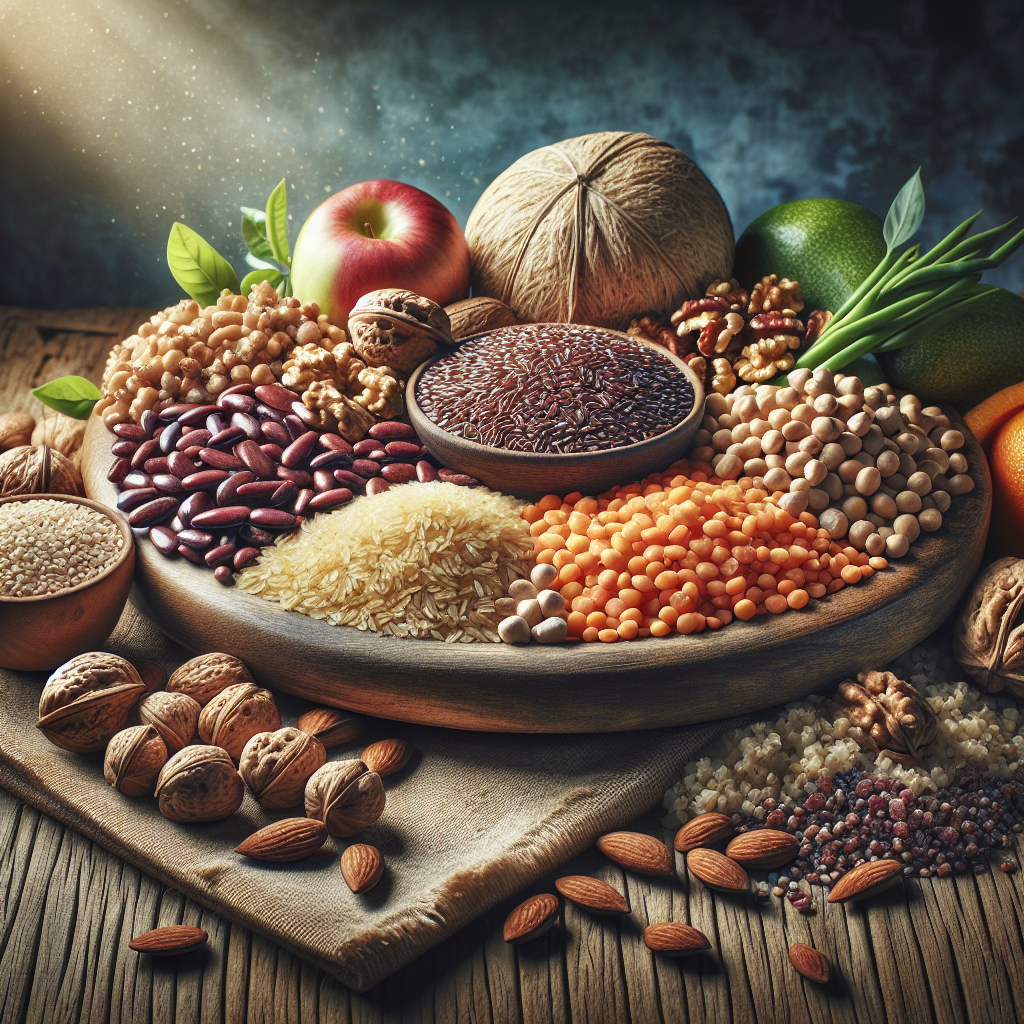Discover the Benefits of B1 Vitamin for Your Health!
Vitamin B1, also known as thiamine, is a water-soluble vitamin that plays a crucial role in maintaining our overall health. It is essential for converting carbohydrates into energy, which makes it vital for our body's metabolic processes. Without adequate levels of B1, our energy production can be significantly impaired, leading to fatigue and lethargy.
This vitamin not only aids in energy metabolism but also contributes to the proper functioning of the nervous system. It helps in the synthesis of neurotransmitters, which are essential for communication between nerve cells. Furthermore, thiamine is pivotal in supporting cardiovascular health by promoting healthy heart function.
In addition to these benefits, studies have shown that B1 vitamin can enhance cognitive function and may help in preventing memory loss. This makes it particularly important for individuals who consume alcohol frequently, as alcohol consumption can deplete thiamine levels in the body.
To ensure that you are getting enough of this vital nutrient, consider incorporating foods rich in B1 into your diet, such as whole grains, legumes, nuts, and seeds. However, for those who enjoy a drink, a convenient option is to use a hangover patch that contains natural Vitamin B1. Cure the Hangover before it happens!
How B1 Vitamin Supports Energy Metabolism
Vitamin B1 plays a pivotal role in energy metabolism, serving as a crucial coenzyme in the conversion of carbohydrates into energy. This process is vital as carbohydrates are one of the primary sources of fuel for our bodies. When we consume foods rich in carbohydrates, thiamine aids in breaking them down into glucose, which can then be utilized by cells for various energy-requiring functions.
The primary form of thiamine that acts as a coenzyme is thiamine pyrophosphate (TPP). TPP assists in key metabolic pathways, including the pyruvate dehydrogenase complex, which is essential for cellular respiration. This means that without adequate levels of vitamin B1, our bodies struggle to efficiently produce adenosine triphosphate (ATP), the molecule that stores and transfers energy in cells.
Moreover, B1 vitamin is involved in the metabolism of amino acids and fatty acids, contributing further to energy production. By ensuring that our bodies have sufficient thiamine, we can maintain optimal energy levels, reducing feelings of fatigue and boosting overall performance, especially during physical activities.
Deficiency in vitamin B1 can lead to symptoms such as weakness, irritability, and a decline in mental clarity, highlighting just how integral this vitamin is to our daily functioning and energy metabolism. Ensuring an adequate intake of thiamine—through diet or supplementation—can help support a vibrant, energetic lifestyle.
The Role of B1 Vitamin in Brain Function

Vitamin B1 is not only essential for energy metabolism but also plays a significant role in maintaining optimal brain function. The brain is a highly active organ that requires a constant supply of energy to perform its myriad functions, and thiamine is crucial in supporting this energy demand.
One of the primary functions of B1 vitamin in the brain is its involvement in the synthesis of neurotransmitters, which are the chemical messengers that facilitate communication between nerve cells. Specifically, thiamine contributes to the production of acetylcholine, a neurotransmitter vital for memory, learning, and cognitive processes. Adequate levels of thiamine can help enhance focus, memory retention, and overall cognitive performance.
Furthermore, the brain is particularly sensitive to fluctuations in energy supply. A deficiency in vitamin B1 can lead to neurological disorders, including Wernicke-Korsakoff syndrome, characterized by confusion, memory loss, and impaired motor function. This condition highlights the importance of thiamine in protecting brain health and preventing cognitive decline.
Research suggests that thiamine supplementation may also have potential benefits for individuals experiencing mental fatigue or stress, as it can support the brain's ability to cope with increased demands. By ensuring an adequate intake of vitamin B1, individuals can promote better brain health, enhance cognitive function, and ultimately improve their overall quality of life.
Health Benefits of B1 Vitamin for Overall Wellness

The health benefits of B1 vitamin extend far beyond its role in energy metabolism and brain function. This essential nutrient contributes significantly to overall wellness, making it a vital component of a balanced diet.
One of the most noteworthy benefits of vitamin B1 is its impact on the cardiovascular system. Thiamine helps in maintaining the health of the heart by promoting proper blood circulation and regulating nerve signals that control heart function. Adequate thiamine levels have been linked to lower risks of heart disease, as it assists in reducing the strain on the cardiovascular system.
Additionally, B1 vitamin plays a crucial role in maintaining a healthy appetite and promoting digestion. It aids in the breakdown of carbohydrates, converting them into usable energy, which is essential for metabolic processes. By supporting digestion, thiamine can help prevent gastrointestinal issues and promote overall gut health.
Moreover, vitamin B1 is known for its antioxidant properties, helping to combat oxidative stress in the body. This can be particularly beneficial for reducing inflammation and lowering the risk of chronic diseases, such as diabetes and certain cancers.
Incorporating foods rich in thiamine, such as whole grains, legumes, nuts, and seeds, can significantly enhance overall wellness. By ensuring adequate intake of this vital nutrient, individuals can enjoy improved energy levels, better heart health, and a more efficient digestive system.
Natural Sources of B1 Vitamin for Your Diet

Incorporating natural sources of B1 vitamin into your diet is essential for maintaining optimal health and wellness. Thiamine, being a water-soluble vitamin, is found in a variety of foods, making it relatively easy to include in your daily meals.
One of the richest sources of vitamin B1 is whole grains. Foods such as brown rice, oats, barley, and whole wheat bread are excellent options for boosting your thiamine intake. These grains not only provide vital nutrients but also contribute to a feeling of fullness due to their fiber content.
Legumes, including lentils, chickpeas, and beans, are another fantastic source of thiamine. They offer an array of health benefits, including high protein content and essential minerals, making them an ideal choice for vegetarians and vegans.
Nuts and seeds, particularly sunflower seeds, macadamia nuts, and pine nuts, are also rich in B1 vitamin. These nutrient-dense snacks provide healthy fats along with thiamine, making them a great addition to salads, smoothies, or enjoyed on their own.
Animal products such as pork and fish are significant sources of thiamine as well. Lean cuts of pork, in particular, offer a substantial amount of vitamin B1, which can help meet your daily requirements effectively.
Incorporating a variety of these foods into your diet not only supports your thiamine levels but also enhances your overall nutritional intake. By focusing on natural sources of vitamin B1, you can promote better health and vitality.
How B1 Vitamin Can Help Prevent Hangovers

Many people are familiar with the unpleasant effects of a hangover, which can include headaches, nausea, and fatigue. However, understanding how B1 vitamin, or thiamine, can play a crucial role in preventing these symptoms can change your approach to enjoying alcoholic beverages.
Alcohol consumption can deplete your body’s stores of essential nutrients, particularly B vitamins. Thiamine is vital for energy metabolism, as it helps convert carbohydrates into energy. When you drink alcohol, your body requires more energy to process the alcohol, and this can lead to a depletion of thiamine levels.
By supplementing with B1 vitamin before and after drinking, you can help replenish your body's stores and potentially reduce the severity of hangover symptoms. The natural properties of thiamine support proper brain function and nerve health, which can mitigate some of the cognitive impairments often experienced after a night of drinking.
Additionally, thiamine plays a role in maintaining a balanced mood and reducing irritability, which can be particularly beneficial when dealing with the aftereffects of alcohol. By ensuring adequate intake of B1 vitamin, you can help your body recover more effectively and feel better the next day.
To maximize your hangover prevention strategy, consider using a hangover patch that contains vitamin B1, like those available from Booze Bandage. These patches provide a convenient way to ensure your body receives the necessary nutrients to combat hangover symptoms before they even start. Cure the hangover before it happens!
